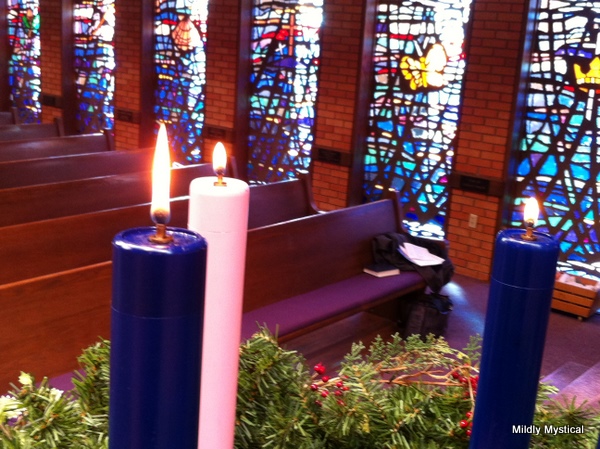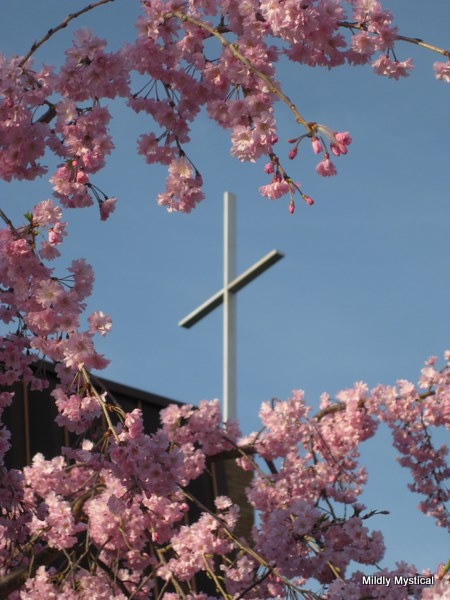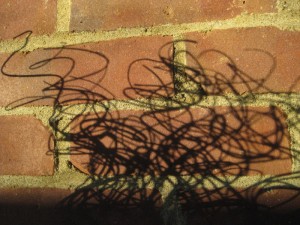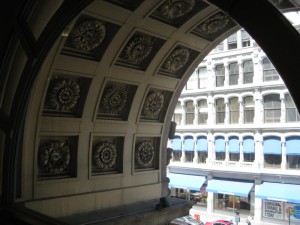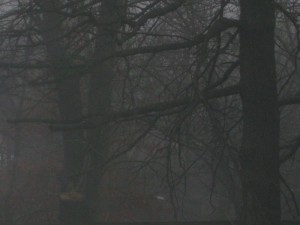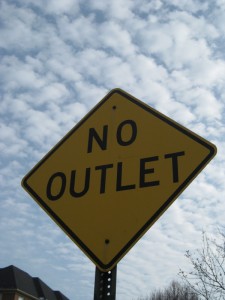Graduation day at Lexington Theological Seminary is announced with bagpipes. The piper, in full regalia, fills the air with tradition. The past is present as we look to the future. Today the Class of 2010 walked down the green hill of the LTS campus and across South Limestone, led once again by the piper, Will Young.
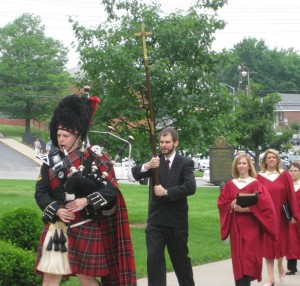
The sound of the bagpipes carries, whether across the moors or across a busy city block. The tones evoke a sense of ancient memory and speak of spiritual longing. The graduation procession winds down the hill, leaving the campus of the seminary—a fitting ritual for commencement. The traffic of modern life pauses for a moment as the line of choir, faculty, trustees, and graduates threads its way across the busy street to the swell of the piper’s chords.
The church has been changing for centuries upon centuries, and the education of its ministers has changed as well. Those connected with LTS are now living through the necessity of change, its uncertainty, and the arduous effort it requires. The seminary is making a transition into new ways of reaching and educating students, and the churches its graduates serve will be finding new ways to reach out and to embody Christ in the world.
Through all the change, we continue to be shaped by memory and longing. The wail of the bagpipes is a way of describing the place where we stand. In our own lives, and in the lives of the institutions we foster and depend on, we stand between what has been and what will be. We hold the teachings and traditions we have received, with our hopes and longings for the world we want to see shaping the way we pass our faith along.
It was a privilege to hear Rev. Dr. William L. Lee, Senior Pastor of Loudon Avenue Christian Church in Roanoke, Virginia give the commencement address. He spoke about the power of being “Chosen,” and the responsibility and accountability that comes with such a designation. He reminded the graduates: you have not just been invited—you have been chosen. Jesus has done the choosing; he knows you for better or worse, and yet he chose you anyway. He sees in you what you cannot see in yourselves. So don’t dwell on what you are not; focus on what you have. God’s grace will always be greater than any failure. And when you no longer believe in God, know that God believes in you. “God knew just what she was doing when she laid hands on you,” he assured them. You can know that, because you have been chosen.
One of my favorite aspects of the LTS graduation ceremony is the hymn, “God of Wisdom, Truth, and Beauty,” sung to the tune of Beethoven’s “Ode to Joy.” It names God in fresh and revealing ways, ascribing divine presence to a vast scope of human endeavors. It offers encouragement to all of us who stand in the transition between what has been and what will be. I leave you with these word to the hymn below:
God of Wisdom, truth, and beauty, God of Spirit, fire, and soul,
God of order, love and duty, God of purpose, plan and goal;
Grant us visions ever growing, Breath of life, eternal strength,
Mystic spirit, moving, flowing, Filling height and depth and length.
*
God of drama, music, dancing, God of story, sculpture art,
God of wit, all life enhancing, God of every yearning heart;
Challenge us with quests of spirit, Truth revealed in myriad ways,
Word or song for hearts that hear it, Sketch and model—forms of praise.
*
God of atom’s smallest feature, God of galaxies in space,
God of every living creature, God of all the human race;
May our knowledge be extended, For the whole creation’s good,
Hunger banished, warfare ended, all the earth a neighborhood.
*
God of science, history, teaching, God of futures yet unknown,
God of holding, God of reaching, God of power beyond each throne;
Take the fragments of our living, Fit us to your finest scheme,
Now forgiven and forgiving, Make us free to dare and dream.
***

